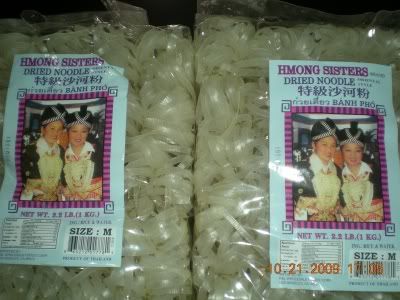New University of Minnesota Professor, Mai Na Lee, Teaches First Hmong History Class
Thursday, October 29, 2009
It's an old article but well worth noting & sharing
Submitted by Bob San
University News Service
Mai Na Lee, the first female Hmong professor at the University of Minnesota, is accustomed to charting new courses.
Lee is the first Hmong woman to earn a PHD from UW-Madison. She is also the first Hmong in the United States to earn a PHD degree in history.
This fall at the U of M, Lee is teaching the first course on Hmong history titled: Hmong History Across the Globe. It is believed that this is the first time a Hmong history class is being offered as a regular curriculum course at a major research university in the U.S. There are classes about the experience of Hmong in the United States and classes on Hmong culture and language at various universities; but Lee's class, which examines Hmong interaction with lowland Southeast Asian states (pre-1893), under French colonial rule (1893-1955) and their entanglements with the Americans as guerrilla soldiers in a Secret War in Laos (1960-75) and subsequent exile to the West (1975-2006), is the first of its kind.
Lee was born in Laos and came to the United States when she was 12. Her family settled in Wisconsin, moved to St. Paul and returned to Wisconsin. She came back to Minnesota when she enrolled at Carleton College in Northfield. She started out as a pre-med major, having geared toward the sciences since high school, but decided to learn about the history of Hmong. Much to her surprise, there was nothing to learn. "When I went to the library there were lots of materials about India, China and Japan but there were nothing about Hmong."
Lee found her calling.
"I started getting interested in the history of the Hmong people," Lee recalled. "I needed to know and write about my own history."
An encounter with Carleton history professor Chang-tai Hung inspired Lee to abandon the financially secure pre-med degree for the less financially secure, but the soul-searching career of an historian.
"Professor Hung's lecture on the triumphs and barriers of Chinese nationalists of the
early 20th century who searched for ways to save their peoples' souls really inspired me to become a historian, because at that time in my life (as well as now), I was very concerned about the soul (history) of my own people," Lee recalled.
Lee changed her major to East Asian (China and Japan) history with a concentration in women's studies and graduated with a BA from Carleton. She went on to earn her Master's degree and PhD in Southeast Asian history with emphasis on the history of Hmong from the University of Wisconsin-Madison.
In 2005, Lee again broke new ground when she wrote her dissertation titled: The dream of the Hmong kingdom: Resistance, collaboration, and legitimacy under French colonialism (1893-1955, (Laos, Vietnam). Her paper was the first scholarly journal to explore Hmong history in the Southeast Asian context.
"That (the fact that nothing had been written about Hmong history) is just sad, because the Hmong have played such a central role in the first and second Indochina Wars in Laos," Lee said. "You don't read about them and things you read are not historically accurate."
As Lee neared graduation, she anticipated a hard time finding a tenure track job as a historian of Southeast Asia who specialized on the Hmong, a highly marginal topic in the field.
"The Hmong, or for that matter, Highlanders and Montagnards, are not the most significant topics among the ranks of Southeast Asian scholars," Lee said. "Most scholars of Southeast Asia focus their attention on the plains, on the lowlanders - Thais, Indonesians, Filipinos, etc. So, I had been quite depressed about my job prospects. It's one thing to do history to try to find your people's soul, but it's quite another to realize that what you do may not put food on your table because it is not popular among your cohorts. As I approached the completion of my studies, that reality hit me. Here I was, all those years, driven only by my idealism and dreams, and now I had to think about paying back student loans."
But thanks to the work of U of M professors Ann Waltner and Mary Jo Maynes, Lee was offered a great opportunity. Waltner, a professor of history, and Maynes, then chair in the history department, convinced the higher up administrators to appoint Lee as a Presidential Post-doctorate for two years (2005 & 2006) until the tenured-track position opened up this fall.
"I am here because of people who see a need for a Hmong historian at the U of M," Lee said. "Although the timing of my arrival to the university is a bit late, considering that the Twin Cities has been home to the densest Hmong population anywhere in the globe for the last 30 years, it was perfect for me. If I had gone to Florida or Massachusetts I would teach just Southeast Asian history, but not about the Hmong," Lee said.
Lee also is drawn by the large and vibrant Hmong community in the Twin Cities. She is particularly excited about the fact that her courses may channel more Hmong students to study Hmong history.
"I went into history for personal knowledge and gratification," Lee said. "Teaching at the U of M will allow me to work with Hmong students who may also have a longing to search for their history and personal identity."
"This unique course will be of particular interest to anyone who works with or simply wishes to gain more knowledge about the current status of the Hmong and their past history and about how they ended up in the United State," Lee said.
Source






